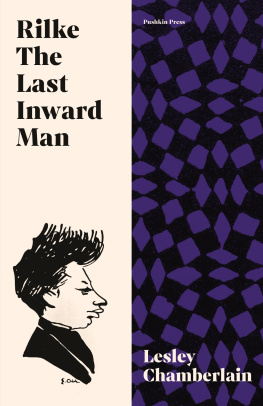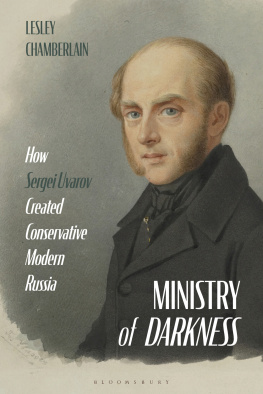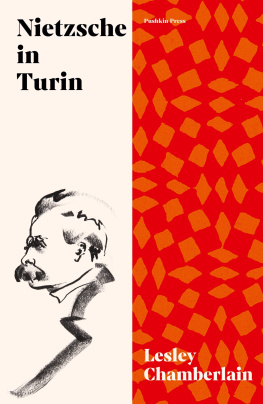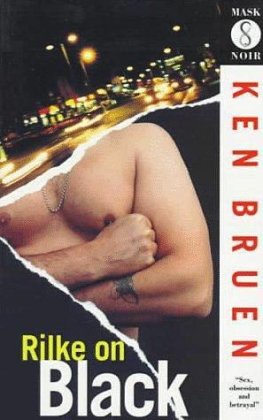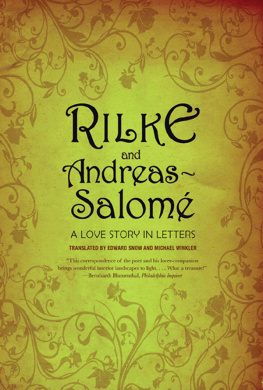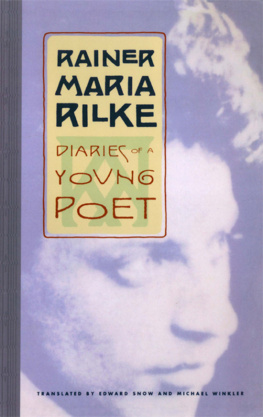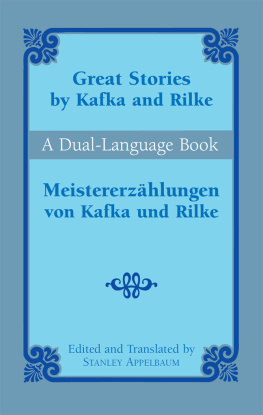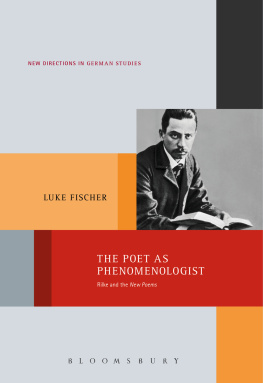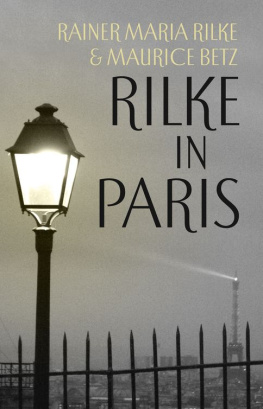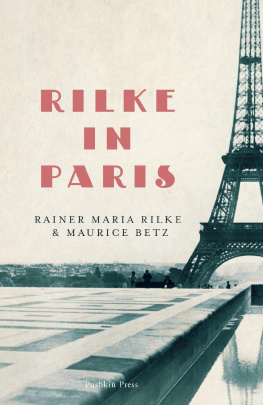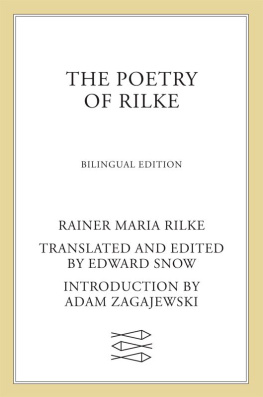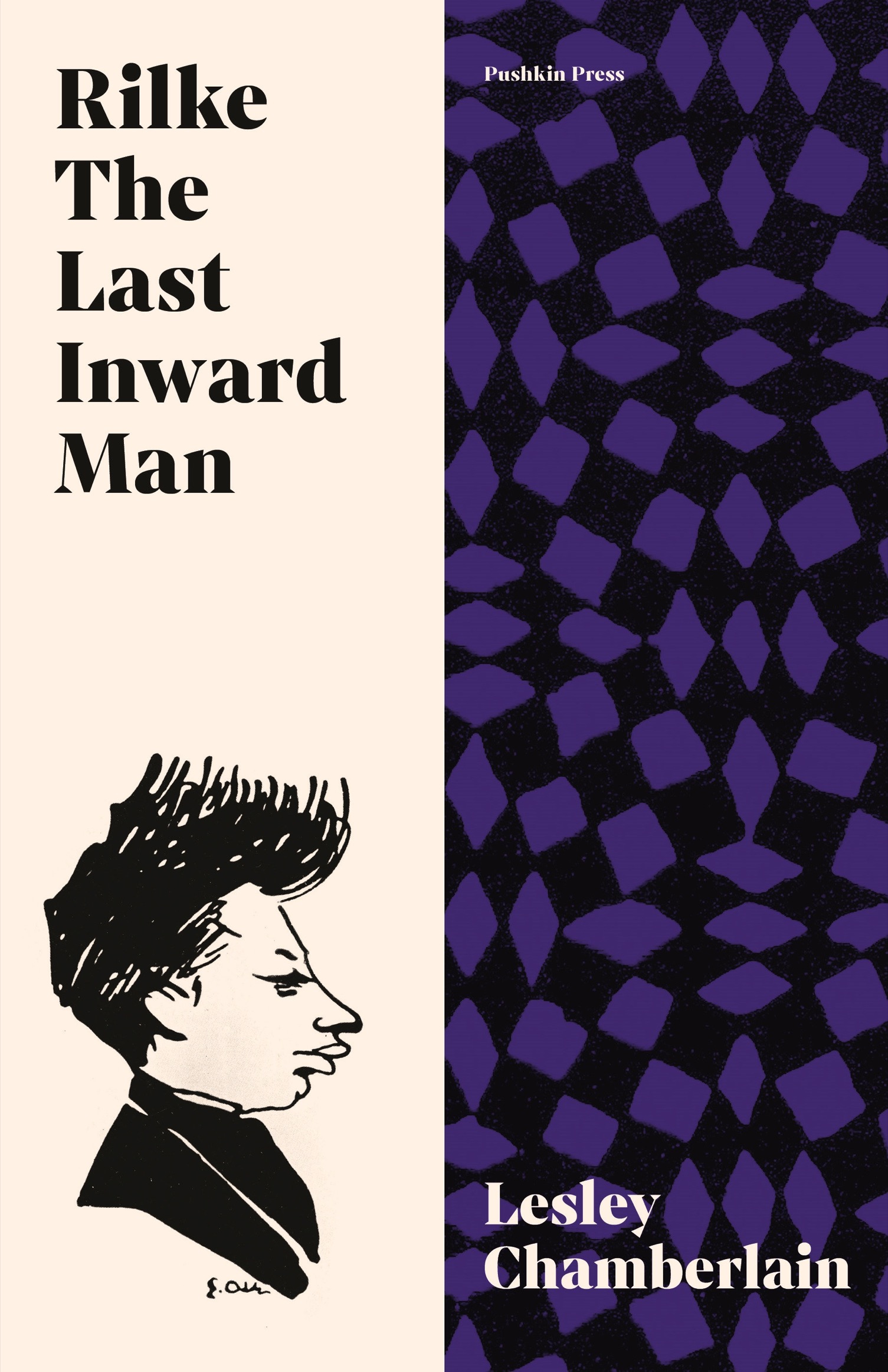I t can only be symbolic to call one of the greatest European poets of the twentieth century the last inward man. Some of us, perhaps at different stages in our lives, will always be attracted to the mystical and the metaphysical. On the other hand, the age of inwardness, the flowering of cultures in the West that were individualistic and reflective, has passed. Rilke himself experienced a great shift in attitude, as more organized forms of religious worship, and faith itself, dwindled in his lifetime. He was never a believer in God. But still the idea, or, rather, the feeling of God, meant a great deal to him. This is one clue to what makes him not only a great poet but an important figure historically. His reputation was at its height, early in the twentieth century, when the cultural momentum was suddenly intensely secular and political. The politically engaged future challenged what art should be. Rilkes angels and roses suddenly seemed absurdly irrelevant. Yet it seems to me Rilkes achievement, and his standing, are all the more poignant, viewed from this crossroads in time.
In 1926, when he died aged only fifty-one, everyone was reading Rainer Maria Rilke, if by everyone we can mean the English novelist Virginia Woolf and, say, the future American art critic Meyer Schapiro, who made his first trip to Europe carrying Rilke in his pocket. The Austrian modernist novelist Robert Musil was another huge admirer, while in France Andr Gide, a delicate novelist caught between religious inwardness and Nietzschean amoralism, and Paul Valry, a modernist poet of comparable complexity, had both met Rilke and held him in high artistic esteem.
Musil hailed the richness of Rilkes language in a lengthy memorial address in 1927. But then, just ten years later in German-speaking circles, and just a little later in Britain, with the outbreak of war, Rilke was no longer relevant. The German critical avant-garde favoured the imagination of Kaf ka, a poet writing a new kind of prose; and Brecht, a poet who wanted to change the world by revolutionizing the dramatic stage.
Its easy to see why. Rilke was too refined. He appealed to an educated minority. Brecht by contrast was about to transform the lyric poem, and the very concept of theatre, in the hope of addressing the mass of people. His task was to welcome themand their experience, and their language, rougher and hungrier and more spontaneousinto the cultural mainstream. Kaf kas parables of the mysterious ways of authority meanwhile tapped a new kind of political experience. This was how the confused ordinary man found himself up against menacing higher authorities. The pressure of authority was constantly there yet so hard to grasp that it went without a name. Political references back to Kaf ka would abound throughout the totalitarian twentieth century, whereas it was said that Rilke was not political at all. And that was true, though not, as we shall see, the whole story. Meanwhile, I wonder if any account of a great artist read in many countries, absorbed into diverse cultures, can ever be the whole story. GermanyAustria, France, Britain and the United States all had their particular Rilke timelines in the last century. Within that comparison American readers seemed to have loved Rilke uninterruptedly, because he gifted them a moving critique of the pace and style of industrial life, which otherwise they could often not bear. Rilke gave, and still gives, a function for poetry to help any and all of us withstand the materialisttechnological onslaught. He is a secular bulwark, spiritual but not religious, something these days increasingly rare.
The European timeline reflected the way that spiritual influence became old-fashioned so quickly, with the Continent wracked by war and in political crisis. Poetry modernized itself radically and became more social in the politically charged 1930s, in Germany especially, after defeat against England, and hyperinflation, and the rise of nationalism and organized labour power. England itself followed, but more spasmodically, and at a decades remove, and never with quite the same relentlessness. Still, all this, and the speed of change, was a revolution, and, from our point of view here, a revolution in sensibilitya revolution in the way things were felt and evaluated. This new revolution had everything to do with what modern and modernism in literature meant. Those cultural phenomenafor they were more phenomenal than consciously organizedhad in their turn other causes too.
Two or three decades earlier, above all, there had been an aesthetic revolution, of which Oscar Wilde and Henry James caught the outside edge, and Rilke was touched by it too. Indeed he was closer to the hub of the wheel. He was driving the change. It was there in the way he wrote. He was subjective. He wanted to tell the world about his inner feelings and how hard he found it to place himself in the world. Some of that difficulty had to do with the early years of the twentieth century, and the very way he recorded his inwardness reflected the need to find a new way to say how anxious he was. And yet, at the same time, he didnt entirely leave the nineteenth century and its calmnessand in German literature its regionalismbehind.
I will often talk about art in this book. I dont like the arts because that is already a commercial concept and a commodity. Its the way art goes because artists have to live, and because people who can afford it, and many who cant, want art in their lives and find a way to buy or borrow or steal it. But there, Im saying what they wantwhat I wantis art, not the arts. Its a great need. At the same time the word, somehow misleading in English, doesnt just mean painting. As I use the word art I mean everything encompassed by the German word die Kunst. That includes music, sculpture, poetry and drama. (Film would be there, except its too early in Rilkes lifetime, and his particular experience, for film.) The idea of art binds all these creative activities together in a refined, deeply worked response to what is human. Nature may be inimitably beautiful, dramatic, portentous and sublime. We can read many messages into nature. But it can never produce, of itself, what art and artists give us, namely, a record of how the life around us collides with, and stimulates, our imagination.
Take music. Classical music offers a fabulous example of what was happening to art in Rilkes Austria and Germany in the early twentieth century. Though audiences protested, already Schoenbergs atonal music seemed to express the modern technology-driven condition. It was exciting, bewildering, but also repetitive and seemingly forever unfinished. The sentimental human heart suddenly didnt know where to take refugeand nowhere was probably the implicit answer. Face up to modernity, that is, to a certain new kind of bleakness and rawness, exposed by the age of the machine. Dont hide away.
The neo-Romantic style of composition which preceded Schoenberg was quite different. Schoenberg himself caught the tail end of the fashion, which is why many Romantic listeners prefer the richly textured, but still tonal, early work. Personally I love to embed myself in the First String Quartet in D Minor, op. 7. I can find a home therethe kind of spiritual home Rilke would often allude to, and meaning a home in the imagination. The neo-Romantics were composers like late Brahms and the searingly emotive Hugo Wolf. Their emotionally laden and discordant harmonies pointed ways out of the nineteenth century. But they did not compel the abiding Western tradition to reinvent itself, as Schoenberg did, perhaps regrettably, but necessarily, after he left that op. 7 behind.

